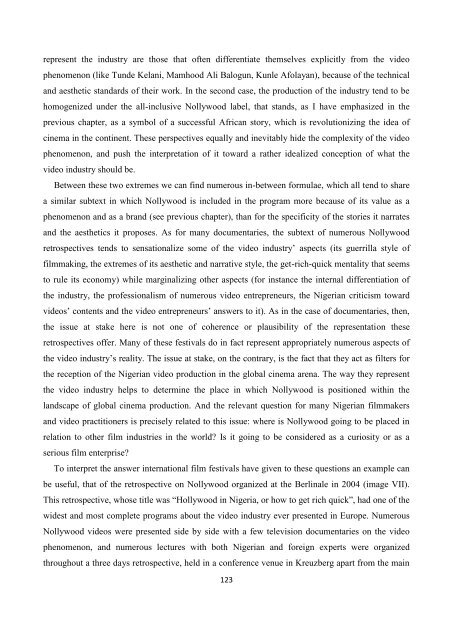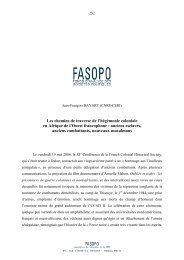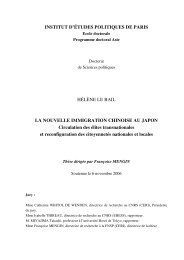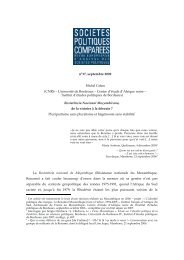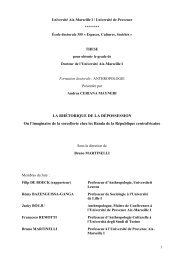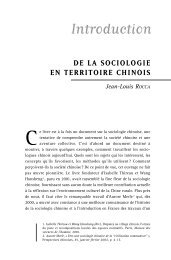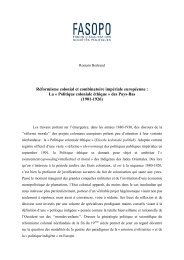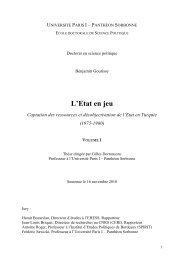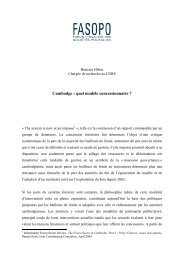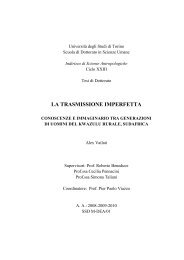Create successful ePaper yourself
Turn your PDF publications into a flip-book with our unique Google optimized e-Paper software.
epresent the industry are those that often differentiate themselves explicitly from the videophenomenon (like Tunde Kelani, Mamhood Ali Balogun, Kunle Afolayan), because of the technicaland aesthetic standards of their work. In the second case, the production of the industry tend to behomogenized under the all-inclusive Nollywood label, that stands, as I have emphasized in theprevious chapter, as a symbol of a successful African story, which is revolutionizing the idea ofcinema in the continent. These perspectives equally and inevitably hide the complexity of the videophenomenon, and push the interpretation of it toward a rather idealized conception of what thevideo industry should be.Between these two extremes we can find numerous in-between formulae, which all tend to sharea similar subtext in which Nollywood is included in the program more because of its value as aphenomenon and as a brand (see previous chapter), than for the specificity of the stories it narratesand the aesthetics it proposes. As for many documentaries, the subtext of numerous Nollywoodretrospectives tends to sensationalize some of the video industry’ aspects (its guerrilla style offilmmaking, the extremes of its aesthetic and narrative style, the get-rich-quick mentality that seemsto rule its economy) while marginalizing other aspects (for instance the internal differentiation ofthe industry, the professionalism of numerous video entrepreneurs, the Nigerian criticism towardvideos’ contents and the video entrepreneurs’ answers to it). As in the case of documentaries, then,the issue at stake here is not one of coherence or plausibility of the representation theseretrospectives offer. Many of these festivals do in fact represent appropriately numerous aspects ofthe video industry’s reality. The issue at stake, on the contrary, is the fact that they act as filters forthe reception of the Nigerian video production in the global cinema arena. The way they representthe video industry helps to determine the place in which Nollywood is positioned within thelandscape of global cinema production. And the relevant question for many Nigerian filmmakersand video practitioners is precisely related to this issue: where is Nollywood going to be placed inrelation to other film industries in the world? Is it going to be considered as a curiosity or as aserious film enterprise?To interpret the answer international film festivals have given to these questions an example canbe useful, that of the retrospective on Nollywood organized at the Berlinale in 2004 (image VII).This retrospective, whose title was “Hollywood in Nigeria, or how to get rich quick”, had one of thewidest and most complete programs about the video industry ever presented in Europe. NumerousNollywood videos were presented side by side with a few television documentaries on the videophenomenon, and numerous lectures with both Nigerian and foreign experts were organizedthroughout a three days retrospective, held in a conference venue in Kreuzberg apart from the main123


